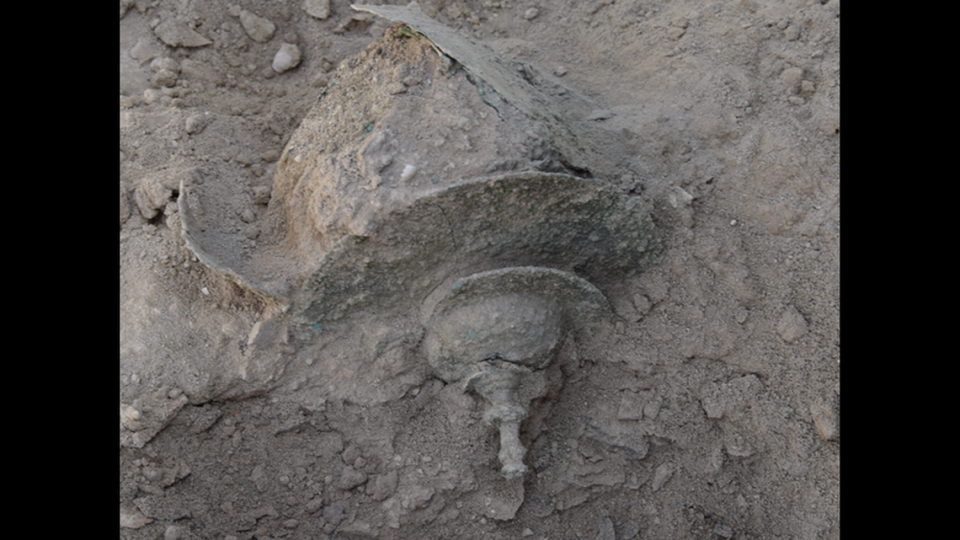Ancient armor — maybe from a local hero — found hidden in strange spot in Greece
While excavating a large room in the ruins of an ancient Greek city, archaeologists stumbled upon a massive ceramic jar known as a pithos that was used to hold food.
But when they took off the jar’s lid, they found something much more extraordinary: ancient bronze armor.
The armor included the center of a shield, helmet fragments and maybe a belt, according to a Nov. 2 news release from Ca’Foscari University of Venice. Experts from the university found the bronze pieces while conducting excavations on the ancient city of Festòs, also known as Phaestus, on the island of Crete.

Experts said the shield was likely made of a perishable material like leather, so what remains is the central bronze piece, known as an umbo. It has a round, central area with a long fragment protruding out and a series of holes at its edges. A bronze ring sticks in from the interior of the shield, mirroring the long piece on the front.

The best preserved pieces of the helmet are the two bronze cheekpieces, which would have protected the wearer’s cheeks and jaws, archaeologists said in the release. Both pieces are decorated with circular designs and have holes that would have been used to attach the cheekpieces to the rest of the helmet.

The discovery is particularly extraordinary because it was found in a non-funerary setting, according to researchers. Typically, warriors’ armor would be buried in a dedicated area, and it is rare to find it in the context of a settlement.
Archaeologists have hypothesized that the armor might have belonged to a local hero who was buried in a place of worship in connection to Festòs’ founding as a Greek city state between the eighth and seventh centuries B.C., the university said.

Two iron knives, a collection of different sized pouring vessels and a small terracotta shield painted white were found near the large jar holding the armor, researchers said. These artifacts are typical of grave goods left at a warrior’s tomb, and experts think they could have served as symbolic offerings.
Crete is in the Mediterranean Sea, south of Greece.
Google Translate was used to translate a news release from Ca’Foscari University of Venice.
Sprawling tomb sat untouched for 2,600 years — until now. See its remarkable treasures
Royal scribe died 2,500 years ago in Egypt. His job might have caused his early death
Huge burial chamber hid under Mexico town for centuries — until now. See its treasures


